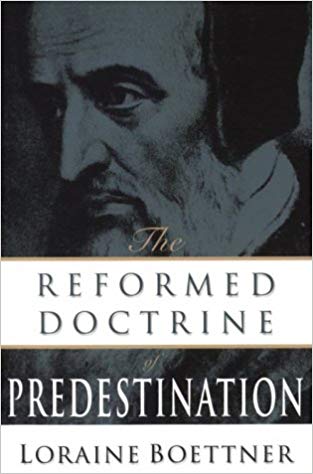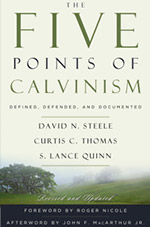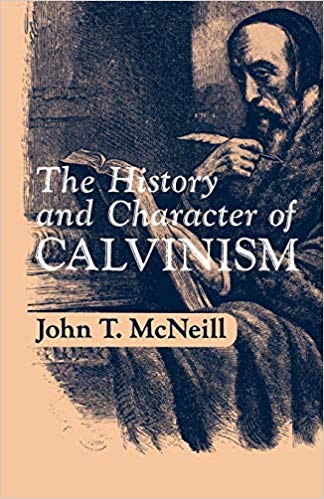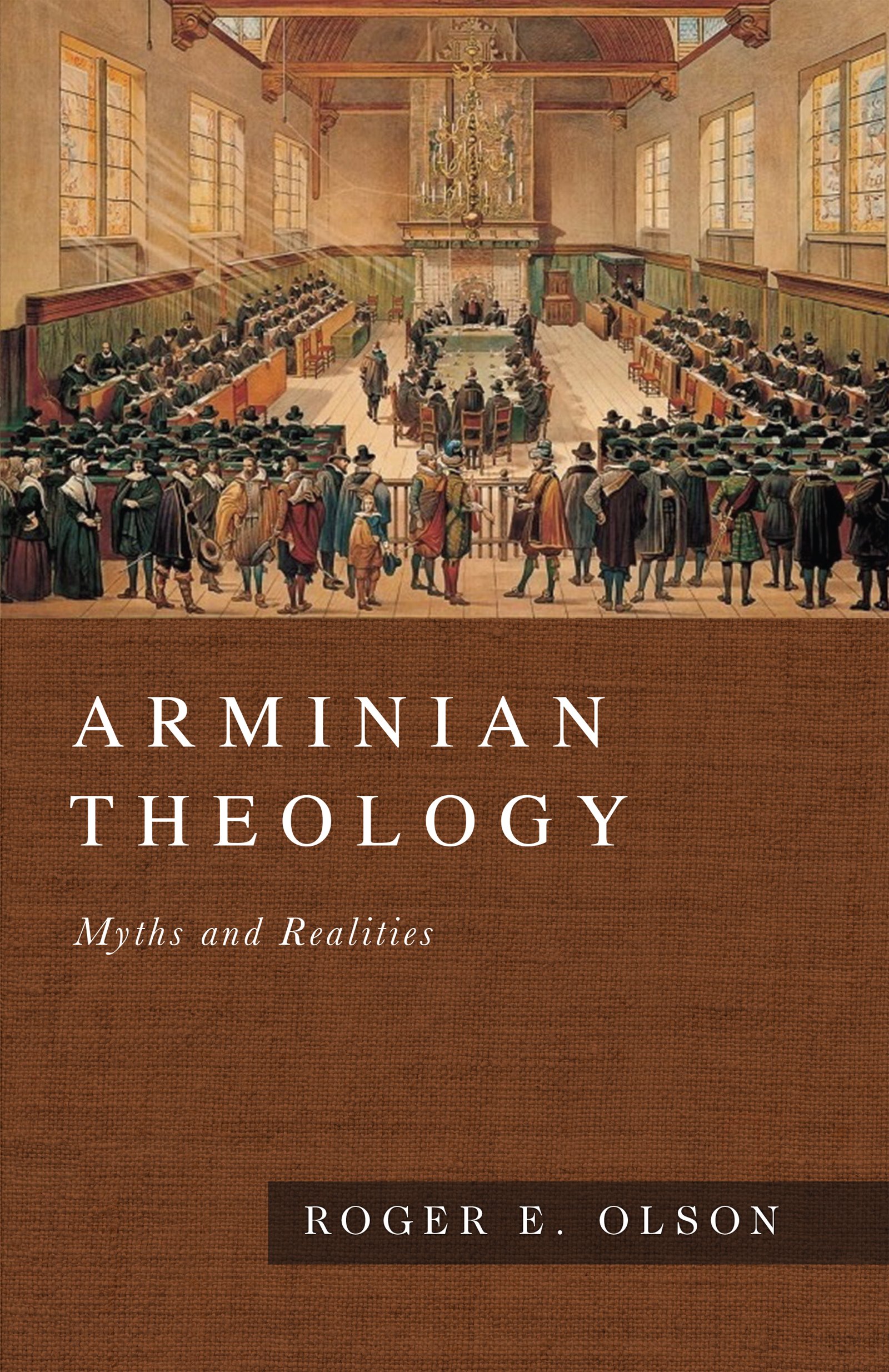A doctrine crucial to understanding the biblical doctrine of salvation is efficacious grace. Efficacious grace means that men who are dead spiritually are regenerated and effectually called by the Holy Spirit. The Holy Spirit works immediately upon the soul infusing a new spiritual life into it, thus changing it in such a way that it is spiritually alive and oriented toward Jesus Christ. The Holy Spirit enables and persuades men to embrace Jesus Christ savingly. The reason it is called efficacious grace is that this special grace produces the effect intended by God: the salvation of particular individuals. This special grace has been called irresistible, effectual, invincible, unconquerable, and certain. This doctrine logically proceeds from man’s total depravity and inability, God’s unchangeable decree of election, and Christ’s definite atonement for the elect. The doctrine of efficacious grace is intimately related to the doctrines of regeneration and effectual calling. If a person understands the biblical teaching regarding these doctrines, he will understand efficacious grace.
The Arminian Doctrine of Sufficient Grace
Efficacious grace is one of the pillars of biblical Christianity, for the only theological alternatives to it involve some type of human merit in salvation. Classical Arminianism teaches that all men are depraved as a result of Adam’s sin and thus cannot believe in Christ and repent without God’s help. They argue that Christ died for all men without exception and that by His death Christ provided sufficient grace to all men to believe and repent.106 Men are required to cooperate with this sufficient grace. Men of their own power, their own free will, either cooperate with this grace or reject it. In the Arminian system, salvation is based on the free will of man. Arminianism does not permit God to be sovereign over the salvation of sinners because that would intrude upon their concept of the sovereignty of the will of man. Man “is powerful enough to obstruct or resist the [special] grace of God who desperately wants all men to be saved!”107
It is important to recognize that the Arminian idea of a sufficient grace given to all men without exception is not taught anywhere in Scripture, but rather logically flows from their concept of conditional election and a universal atonement. If God is doing everything within His power to save all men, and if Christ died a sacrificial death for all men, then it is argued that the Holy Spirit must also work equally upon all men to save them. What makes the difference as to who is saved and who is not is the cooperation of the human will. Each person has the ability to reject God’s special grace or to act upon it and be saved.
The problems that arise from the Arminian concept of sufficient grace are manifold. First, it cannot be reconciled with the total depravity and total inability of unregenerate man. The Bible teaches that man is either spiritually dead or spiritually alive. Sufficient grace cannot be made efficient by an act of the will if the will is spiritually dead and unwilling. For grace to be sufficient toward a spiritual corpse, it must also be efficacious. “A living man may be persuaded not to commit suicide; but a dead man cannot be persuaded into life.”108 The Bible teaches that only regeneration can enable a person to repent and believe. Second, the Arminian concept of a resistible special grace necessitates radically altering the doctrine of Christ’s atonement. The Arminian is forced to argue that no causal and meritorious relationship exists between Christ’s redemptive work and the application of His sacrifice to those for whom He died. He must deny that Christ, by His suffering and death, procured regeneration and “merited faith and repentance for those who come at length to believe and repent.”109 (As noted in the chapter on limited atonement, Arminians severely limit the power of Christ’s death to save.) Third, the Arminian idea that man must cooperate with grace in order to be saved has led to a complete redefinition of the doctrine of regeneration. If the Bible teaches that regeneration is solely an act of God in which man does not cooperate, then the idea that man allows God to regenerate people by an act of the will must be rejected. To argue that the first stage of regeneration is a work caused by man or partly by man and partly by God is a dangerous heresy. It is an explicit denial of the “necessity of an internal work of supernatural grace to conversion and the production of faith.”110 It is man who must repent and believe in Christ. But if repentance and faith are not gifts of God produced by the Holy Spirit’s power, then faith becomes a work and not a product of pure grace. “According to the Arminian system it depends upon the free-will of the man to make the sufficient grace of God common to all men efficient in his case. But the Scriptures declare that salvation is altogether of grace, and a gift of God.—Eph. ii. 8; 2 Tim. ii. 25; Rom. ix. 15, 16.”111
Fourth, the Arminian idea that sufficient grace is given to all men is absurd given the fact that very few people throughout the world have had any opportunity to hear the gospel. In fact, in the past two thousand years only a tiny fraction of the world’s population has heard the gospel. If God is trying to save every human being, and has given sufficient grace to everyone, why would He not make provisions for all men without exception to hear the external call of the gospel? God could raise up one hundred thousand apostle Pauls if He wanted to. But He has not. Arminians, in their attempt to fit God’s plan of salvation into their concept of fairness, have presented God as an incompetent. God makes provisions in one area but forgets about another area. A humanistic, non-scriptural standard of fairness always leads logically down the road toward universalism. Both the Romish church and some prominent Evangelicals (e.g., Billy Graham) have already abandoned the scriptural doctrine that Jesus Christ is the only way to obtain eternal life.
Fifth, the Arminian position contradicts the express teaching of Scripture, which says “that not even all who receive the external call have sufficient grace.”112 When Paul explained why most of ethnic Israel rejected the gospel he said, “Israel has not obtained what it seeks; but the elect have obtained it, and the rest were hardened. Just as it is written: ‘God has given them a spirit of stupor, eyes that they should not see and ears that they should not hear, to this very day’“ (Rom. 11:7-8). Did God give the Israelites who rejected Jesus Christ sufficient grace to believe? Absolutely not! Rather than counteracting their depravity, inability and hatred of Jesus, God hardened them (v. 7, cf. Rom. 9:16-24; Jn. 10:26-27; Isa. 6:9-10; Mk. 4:12; Lk. 8:10). Jesus did not teach a sufficient grace to all, but an efficient grace to some. “Why do you not understand My speech? Because you are not able to listen to My word. You are of you father the devil…. He who is of God hears God’s words; therefore you do not hear, because you are not of God” (Jn. 8:43-44, 47). When Paul discusses the heathen in Romans 1:18-20 and 2:12-15 he says that they are responsible because of the general revelation in nature. He declares that they are under a law of works, yet says nothing about a universal sufficient grace.113
Girardeau points out the absurdity and impossibility of the Arminian doctrine of sufficient grace: “The Evangelical Arminian not only admits the fact, but contends for it, that every man in his natural fallen condition is spiritually dead—is dead in trespasses and sins. The problem for him to solve is, How can this spiritually dead man make his possible salvation an actual salvation? It must not be done by the impartation to him of efficacious and determining grace, for to admit that would be to give up the doctrine of a possible salvation and accept that of a decreed and certain salvation. Nor must it be done by regenerating grace, for two difficulties oppose that supposition: first, this regenerating grace would necessarily be efficacious and determining grace; and secondly, it could not with truth be maintained that every man is regenerated. A degree of grace, therefore, which is short of regenerating grace, must be conferred upon every man. What is that? Sufficient grace—that is to say, a degree of grace imparting ability sufficient to enable every man to make a possible salvation actually his own. Now, the argument is short: a degree of grace which does not regenerate, would be a degree of grace which does not bestow life upon, the spiritually dead sinner. If it did infuse spiritual life it would of course be regenerating grace; but it is denied to be regenerating grace. No other grace would be sufficient for the dead sinner but regenerating or life giving grace. How could grace enable the dead sinner to perform living functions—to repent, to believe in Christ, to embrace salvation—without first giving him life? In a word, sufficient grace which is not regenerating grace is a palpable impossibility. An ability sufficient to enable the dead sinner to discharge living functions but not sufficient to make him live, is an impossibility. The Arminian is therefore shut up to a choice between two alternatives: either, he must confess sufficient grace to be regenerating grace, and then he abandons his doctrine; or, he must maintain that grace is sufficient for a dead sinner which does not make him live, and then he asserts an impossibility.”114
The Necessity of Efficacious Grace
The Calvinistic doctrine of efficacious grace can be understood only if one has a correct understanding of total depravity and the doctrine of regeneration. As noted in the chapter on total depravity, man is not in a state in which he can cooperate with the Holy Spirit. Man is dead spiritually (Eph. 2:1-5). He hates the truth and Jesus Christ (Jn. 3:19-21), dwells in darkness (Jn. 1:4-5), has an uncircumcised heart of stone (Ezek. 11:19), is helpless (Ezek. 16:4-6), cannot repent (Jer. 13:23), is a slave to Satan (Ac. 26:17-18), and cannot see or comprehend divine truth (1 Cor. 2:14). Can a spiritual corpse cooperate with grace? Can a person who is blind and deaf to spiritual truth embrace it? Can someone who hates Jesus Christ because he is born at enmity with God change his own nature? Can a person of his own free will hate that which he naturally loves and love that which he naturally hates? “Can the Ethiopian change his skin or the leopard his spots? Then may you also do good who are accustomed to do evil” (Jer. 13:23). Because man is spiritually dead, only a radical, all-pervasive change in man’s heart can enable him to embrace Jesus Christ. In order for God’s grace to be sufficient for any man, it must be efficacious. Only the power of God working directly upon the human soul can infuse it with new life. Sinful man does not need some assistance to save himself, but a spiritual resurrection, a total work of renovation. “No one can come to Me unless the Father who sent Me draws him…. No one can come to Me unless it has been granted to him by My Father” (Jn. 6:44, 65).
Avoiding a Common Misunderstanding
If men are dead spiritually, only those whom God sovereignly chooses to regenerate will repent and trust Christ. The idea that men cooperate with God in regeneration is as absurd as teaching that Jesus raised Lazarus from the dead because his corpse was willing to be raised. Some misunderstanding regarding regeneration is understandable given the fact that regeneration has two different senses in the New Testament. Sometimes it refers to the whole conversion process in which the reborn heart comes in contact with the word and is first called into action. Passages such as 1 Peter 1:23 and James 1:18 discuss the regenerate heart as it comes in contact with the Word of God and issues forth into conversion. “This is the effectual calling through the instrumentality of the word of preaching, effectively applied by the Spirit of God. This effectual calling finally secures, through the truth as a means, the first holy exercises of the new disposition that is born to the soul. The new life begins to manifest itself, the implanted life issues in the new birth.”115 Arminians often quote passages which discuss the second stage of regeneration in which God employs means (the preaching of the gospel) to argue that the Holy Spirit uses moral suasion upon man’s will to get him to cooperate with grace and choose Christ.
This interpretation, however, ignores the other sense in which regeneration is used in the Bible. During the first stage in regeneration the Holy Spirit works without means; that is, He works directly upon the soul apart from the preaching of the Word. The Holy Spirit comes to a man who is dead, blind, and deaf to spiritual truth and quickens him, implanting new life into the dead heart. The inner disposition of the soul is renewed and made holy. “In this act of God the ear is implanted that enables man to hear the call of God to the salvation of his soul. This is regeneration in the most restricted sense of the word. In it man is entirely passive.”116 The first stage of regeneration can be compared to the implantation of a seed, and the second stage could be compared to the process of giving birth. Regeneration in the strict sense logically precedes or is coterminous with the preaching of the gospel because the gospel cannot have persuasive power over a corpse. “Men see by the light. Without light vision is impossible. Yet the eyes of the blind are not opened by means of the light. In like manner all the states and acts of consciousness preceding or attending, or following regeneration, are by the truth; but regeneration itself, or the imparting spiritual life, is by the immediate agency of the Spirit.”117 Once God opens the heart through regeneration, the regenerated person can and will believe the gospel. “The Lord opened her [Lydia’s] heart to heed the things spoken of by Paul” (Ac. 16:14).
Regeneration Is Solely an Act of God
The first stage of regeneration is solely an act of God in which man does not cooperate. Jesus said, “The wind blows where it wishes, and you hear the sound of it, but cannot tell where it comes from and where it goes. So is everyone who is born of the Spirit” (Jn. 3:8). “When we examine the words of our Lord in John 3, there can be doubt but that He taught that God the Holy Spirit is the ultimate origin, source and author of regeneration. To Him belongs the glory and power forevermore. In regeneration, we must view God as being active while sinners must be viewed as totally passive. Thus regeneration is not a cooperative program between God and man. God alone regenerates, and He does so without the work, help or even consent of sinners.”118
That regeneration in the strict sense of the term is not a cooperative process between man and God is clearly taught throughout Scripture. Paul wrote: “Not by works of righteousness which we have done, but according to His mercy He saved us, through the washing of regeneration and renewing of the Holy Spirit” (Tit. 3:5). God sprinkles clean water upon the human heart, cleansing it (Ezek. 36:25). The Holy Spirit removes the heart of stone that cannot respond to spiritual truth and replaces it with a heart of flesh (Ezek. 36:25). Jesus described the new birth as being “born of the Spirit” (Jn. 3:5-6). The terms used to describe the work of the Holy Spirit upon the heart of man all describe a miracle of God. They all point to a spiritual resurrection. Men are “born again” (Jn 3:3), “regenerated“ (Tit. 3:5), “made alive” or “quickened” (Eph. 2:5). The person regenerated is called a “new creation” (Gal. 6:15; 2 Cor. 5:17) and a “new man” (Eph. 4:24). “These terms denote a work of omnipotent power. The origination of life is impossible to the creature. He can receive life; he can nurture life; and he can use and exert life. But he cannot create life.”119
Men can preach effectively and use all the persuasive power that they can muster to convince people to believe in Christ. But only the Holy Spirit can enable a person to believe. Only God’s regenerating power causes the church to grow. Paul wrote: “I planted, Apollos watered, but God gave the increase. So neither he who plants is anything, nor he who waters, but God who gives the increase” (1 Cor. 3:6-7). “As in nature, planting and watering are not the efficient causes of vegetation; so in the church, ministerial acts are not the efficient causes of grace. In both cases all the efficiency is of God.”120
In John 3:3, where Jesus tells Nicodemus that “unless one is born again, he cannot see the kingdom of God,” the word translated “again” (anothen) should be translated from above. Although the Greek word can be translated “again” (palin anothen, Gal. 4:9) every other passage that uses this word in John (3:31; 19:11, 23) is translated from above. This is also the preferred meaning in the synoptic gospels (e.g., Mk. 15:38). “It is a second birth to be sure, regeneration, but a birth from above by the Spirit.”121 Regeneration comes from heaven, that is, from God. The book of James uses this word in the same manner: “Every good gift and every perfect gift is from above, and comes down from the Father of lights” (Jas. 1:17; cf. 3:15).
The apostle John explicitly taught that man has nothing to do with his own or anyone else’s regeneration. “Who were born, not of blood, nor of the will of the flesh, nor of the will of man but of God” (Jn. 1:13). John said that the new birth is “not of blood,” that is, it has nothing to do with one’s blood line, heredity or race. This view was the common error of the Jews. He also said: “nor of the will of the flesh.” “That which is born of the flesh is flesh” (Jn. 3:6). The natural or fleshly man can only act according to his depraved, corrupt nature. He is blind to spiritual truth, hates God and is opposed to divine truth. The fleshly man cannot initiate the first move toward God unless God first changes his heart. This phrase drives a stake through all synergistic views of regeneration. He continued: “nor of the will of man.” The new birth is not brought into existence by the persuasive power of friends; the great technique of the preacher or the soft mood of the organ music. The new birth is solely a divine work. The Greek says: “but of God were born.” The but is emphatic, emphasizing the contrast between all forms of human effort with the regenerating power of God.
Paul said that “no one can say that Jesus is Lord except by the Holy Spirit” (1 Cor. 12:3). Luke declared that “as many as were ordained to eternal life believed” (Ac. 13:48). The apostle John wrote: “But you have an anointing from the Holy One, and you know all things” (I Jn. 1:20). Why is one person saved and another left in darkness? Because one is regenerated by the Spirit and another is passed by. “For who makes you differ from another? And what do you have that you did not receive? Now if you did receive it, why do you glory as if you had not received it?” (1 Cor. 4:7). “Man needs for God to draw him irresistibly by His grace, or man will never make so much as a single step in the direction of Christ.”122 This is the express teaching of Christ: “No one can come to Me unless the Father who sent Me draws him” (Jn. 6:44).
When Jesus Christ declared to Nicodemus, “That which is born of the Spirit is spirit” (Jn. 3:6), He was telling Nicodemus that the Holy Spirit was the author of regeneration and that the regenerated person has become a spiritual person. “The spiritual man has a spiritual mind, he is possessed with a Person who indwells, seals, intercedes, and empowers.”123 The person who is regenerated has spiritual reality opened up to him. When he reads or hears biblical truth he knows that it is true and immediately believes in Jesus Christ. The regenerating power of the Holy Spirit enables the sinner to see, hear and live; therefore, after regeneration the sinner can repent and turn to Christ. Conversion is the fruit, not the cause, of regeneration. “Now we have received, not the spirit of the world, but the Spirit who is from God, that we might know the things that have been freely given to us by God” (1 Cor. 2:12). Without this spiritual renewal, which is purely a gift of God dependent upon nothing that we do, no one would turn to Christ. “For it is the God who commanded light to shine out of darkness, who has shone in our hearts to give the light of the knowledge of the glory of God in the face of Jesus Christ” (2 Cor. 4:6).
If you are a Christian, it is because God renewed your heart, enabling you to believe in Jesus Christ. Why did Lydia believe in the gospel preached by the apostle Paul? Because God first opened her heart and enabled her to respond to the gospel. Paul “sat down and spoke to the women who met there. Now a certain woman named Lydia heard us. She was a seller of purple from the city of Thyatira, who worshipped God. The Lord opened her heart to heed the things spoken of by Paul” (Ac. 16:13-14). Those who pervert the biblical doctrine of regeneration are guilty of serious error. Because God alone deserves the credit and the glory for man’s salvation, “Salvation is of the Lord” (Jon. 2:9).
Because men are dead in trespasses and sins and unable to comprehend divine truth (1 Cor. 2:14), the Holy Spirit must do a recreative work upon man’s heart in order for him to comprehend and believe the gospel. Jesus said, “Most assuredly, I say to you, unless one is born again he cannot see [comprehend, perceive] the kingdom of God” (Jn. 3:3). “Christ places regeneration by the Spirit as a requirement before one can “see,” i.e., believe, or have faith in the Kingdom of God. He states quite emphatically that a sinner who is born of the flesh cannot believe the good news of the kingdom until he is born by the Spirit. Thus, according to the teaching of Christ, we believe because we are “born again.” We are not “born again” because we believe!”124
Why do most evangelicals and fundamentalists, who have such a high view of Scripture, err so badly on such an important aspect of Christian doctrine? The answer lies in their idea that not even God can do anything to directly change the human will. Although it is true that their doctrine of the new birth flows from their defective understanding of the fall and Christ’s redemptive work, the foundational reason for their error is their exaltation of the human will above even God’s will. They regard the Calvinistic view that God works directly upon the human heart, changing it in a God-ward direction, to be a coercive violation of man’s free will. The Arminian recognizes that once he accepts the idea that God has the power to work directly upon the human heart so that a person will definitely embrace Jesus Christ, his whole paradigm of the salvation process is at once disproved and overthrown. Why? Because this would mean that it is God and not man who determines who is and who is not saved; that God is not trying to save all men, for He obviously does not regenerate all men. “A man can receive nothing unless it has been given to him from heaven” (Jn. 3:27). “Only those views which ascribe to God all the power in the salvation of sinners are consistently evangelical, for the word ‘evangelical’ means that it is God alone who saves. If faith and obedience must be added, depending upon the independent choice of man, we no longer have evangelicalism.”125
God Changes the Heart
Are the Arminians correct when they argue that God cannot directly change the human heart, or that God must first get permission from sinful man to change him? The Arminian position is totally contrary to the explicit teaching of Scripture. There are many passages which teach that God is sovereign over man’s heart and will (cf. Pr. 16:1, 9, 21; Ex. 10:1, 20; Dt. 2:30; Josh. 11:19, 20; Jer. 32:40; Ezek. 1:1, 5; Lk. 24:45; Jn. 12:39, 40; Ac. 16:14; Rom. 9:18-21; Phil. 2:13; 2 Th. 2:11, 12; Rev. 17:17). Also, the descriptions of the new birth given in the Bible are descriptions of God directly changing the human heart. “And the Lord you God will circumcise your heart and the heart of your descendants, to love the Lord you God with all your heart and with all your soul, that you may live” (Dt. 30:16). “Then I will give them one heart, and I will put a new spirit within them, and take the stony heart out of their flesh, and give them a heart of flesh that they may walk in My statutes and keep My judgments and do them” (Ezek. 11:19-20). “I will put My law in their minds, and write it on their hearts; and I will be their God, and they shall be My people” (Jer. 31:33). “I will give you a new heart and put a new spirit within you; I will take the heart of stone out of your flesh and give you a heart of flesh. I will put My Spirit within you and cause you to walk in My statutes” (Ezek. 36:26-27). God quickens or renews the human heart. “For in Christ Jesus neither circumcision nor uncircumcision avails anything but a new creation” (Gal. 6:15). “Not by works of righteousness which we have done, but according to His mercy He saved us, through the washing of regeneration and renewing of the Holy Spirit” (Tit. 3:5). The Holy Spirit circumcises the heart. “And you, being dead in your trespasses and the uncircumcision of your flesh, He has made alive together with Him, having forgiven you all trespasses” (Col. 2:13). “In Him you were circumcised with the circumcision made without hands” (Col. 2:11).
Regeneration is an act of God upon man’s heart. “The Holy Spirit comes and does something to the soul of man…. He penetrates into the innermost recesses of man, into his soul, spirit, or heart.”126 The biblical use of the word “heart” is different than today’s English usage. In the Bible, “heart” represents every aspect of man’s nature, including the intellect, will, and emotions. Because man’s heart is spiritually dead, blind, deaf, and totally depraved, only an act of God upon the whole nature of man is sufficient to draw him in a God-ward direction. This change is somewhat mysterious. Clearly it does not involve a metaphysical change in man’s being. That is, his substance or essence is not changed. Furthermore, it does make a person sinless or perfect. Even the best Christians, such as the apostle Paul, had to struggle against sin and temptation (Rom. 7:15, 25). In an instantaneous act, the Holy Spirit implants in man the principle of a new, spiritual life.
All the words used in the Bible to describe regeneration show us that there are two primary aspects of regeneration: purification and renewal. The internal purification of the sinner is represented by the terms and phrases “born of water” (Jn. 3:5), “the washing of regeneration” (Tit. 3:5), “I will sprinkle clean water…I will cleanse you” (Ezek. 36:25), “the circumcision made without hands” (Col. 2:11), and the removal of the “heart of stone” (Ezek. 36:26). This aspect is essentially negative. The heart must be purified from the defilement of sin. Sprinkling with water and the washing with water in the Old Testament symbolically represented God’s internal purification of the sinner. Circumcision also symbolized the removal of the filth of the flesh. Men need a circumcision of the heart (cf. Dt. 10:16; 30:6; Lev. 26:41; Jer. 9:26). The removal of the heart of stone represents the removal of the natural man’s unresponsiveness to divine truth. Before one plants a garden, the soil must first be prepared. The weeds, thornbushes, hardpan and stones must first be removed before planting the seed. Likewise, the Holy Spirit must change man’s heart before the gospel can take root and grow. “Our natural hearts are hearts of stone. The word of God is good seed sown on the hard, trodden, macadamized highway, which the horses of passion, the asses of self will, the wagons of imaginary treasure, have made impenetrable. Only the Holy Spirit can soften and pulverize this soil.”127
The positive aspect of regeneration is the spiritual renovation of man’s heart. The scriptural terms and phrases used to describe the renovatory aspect are “born again” (Jn. 3:3), “regeneration and renewing of the Holy Spirit” (Tit. 3:5), “made alive” or “quickened” (Eph. 2:5), and “born of the Spirit” (Jn. 3:5-6). The regenerated person is called a “new creation” (Gal. 6:15; 2 Cor. 5:17) and a “new man” (Eph. 4:24). This aspect is represented in the heart of stone becoming a heart of flesh (Ezek. 32:2) and the uncircumcised heart becoming a circumcised heart (Col. 2:11). All the terms used to describe the renovatory aspect of regeneration point to the impartation of spiritual ability, life and enlightenment. Shedd wrote: “Regeneration as the creative and life giving act of God produces an effect on the human understanding. It is ‘illumination’: ‘enlightening the mind,’ Westminster L.C., 67…. ‘The eyes of your understanding being enlightened,’ Eph. 1:18. Phil 1:9. Coloss. 3:10. I John 4:7; 5:20. John 17:3. Ps. 19:7, 8; 43:3, 4. The distinguishing peculiarity of the knowledge produced by regeneration is, that it is experimental.”128
The Unwilling Are Made Willing
The reason that God’s grace is effectual or irresistible is that the Holy Spirit imparts an inclination to holiness in the human heart. Man’s heart is changed in such a way that the unwilling become willing. The person who is regenerated by the Holy Spirit embraces Jesus Christ because he wants to. Shedd wrote: “In the Scripture phraseology, he is ‘made willing,’ Ps. 110:3. God ‘works in him to will,’ Phil. 2:13. In the phraseology of the Westminster statement (L.C., 67), he is ‘powerfully determined.’ By renewing the sinful and self-enslaved will, the Holy Spirit empowers it to self-determine or incline to God as the chief good and the supreme end.”129 The old heart which hated Jesus Christ and considered spiritual matters to be foolishness (1 Cor. 2:14) is replaced with a new heart which is spiritual, which is deeply concerned about spiritual affairs. After a person is regenerated, Christ becomes the most important person in his life. The Savior becomes to him like a hidden treasure and a pearl of great price (Mt. 13:44, 46). Because the heart is made spiritual it desires and loves “the things of the Spirit.” “For to be carnally minded is death, but to be spiritually minded is life and peace. Because the carnal mind is enmity against God; for it is not subject to the law of God, nor indeed can be. So then, those who are in the flesh cannot please God. But you are not in the flesh but in the Spirit, if indeed the Spirit of God dwells in you” (Rom. 8:6-9). God doesn’t put a gun to man’s head and coerce him into the kingdom; rather, He changes him internally so that he voluntarily chooses Christ.130 The human will always acts in accordance with the human heart.
Effectual Calling
Regeneration, in its strictest sense, refers solely to the Holy Spirit’s work in the sub-conscious life of man: “by a creative word God generates the new life, changing the inner disposition of the soul, illuminating the mind, rousing the feelings, and renewing the will. In this act of God the ear is implanted that enables man to hear the call of God to the salvation of his soul.”131 Regeneration in its broadest sense refers to what occurs when the regenerated heart comes in contact with the gospel and the Holy Spirit effectively applies God’s word to the mind. “Having been born again, not of corruptible seed but incorruptible, through the word of God which lives and abides forever” (1 Pet. 1:23). “Of His own will He brought us forth by the word of truth, that we might be a kind of firstfruits of His creatures” (Jas. 1:18). With regeneration the dead sinner is quickened, enabled and disposed toward divine truth. However, not only is the person regenerated by God enabled and made willing, he also is actively drawn toward the truth. Jesus said, “No one can come to Me unless the Father who sent Me draws him” (Jn. 6:44). Hendriksen wrote: “When Jesus refers to the divine drawing activity, he employs a term which clearly indicates that more than moral influence is indicated. The Father does not merely beckon or advise, he draws! The same verb elko, elkuo occurs also in 12:32, where the activity is ascribed to the Son; and further, in 18:10; 21:6, 11; Acts 16:19; 21:30; and Jas. 2:6. The drawing of which these passages speak indicates a very powerful—we may even say, an irresistible—activity. To be sure, man resists, but his resistance is ineffective. It is in that sense that we speak of God’s grace as being irresistible. The net full of big fishes is actually drawn or dragged ashore (21:6, 11). Paul and Silas are dragged into the forum (Acts 16:19). Paul is dragged out of the temple (Acts 21:30). The rich drag the poor before the judgment-seats (Jas. 2:6). Returning now to the Fourth Gospel, Jesus will draw all men to himself (12:32) and Simon drew his sword, striking the high priest’s servant, cutting off his right ear (18:10). To be sure, there is a difference between the drawing of a net or a sword, on the one hand, and of a sinner, on the other. With the latter God deals as with a responsible being. He powerfully influences the mind, will, heart, and entire personality. These, too, begin to function in their own right, so that Christ is accepted by a living faith. But both at the beginning and throughout the entire process of being saved, the power is ever from above; it is very real, strong, and effective; and it is wielded by God himself!”132
In regeneration in the broader sense the implantation of the incorruptible seed, the changing of the heart, the drawing power of the triune God, and the external call of the gospel all come together and give birth to the converted soul. Except in the case of elect infants, elect imbeciles, and John the Baptist (Lk. 1:41-44) regeneration always accompanies either the preached word, the written word, or an intellectual knowledge of the gospel held in the mind received in the past. There are people who hear or read the gospel who immediately are regenerated and saved, and there are people who hear the gospel for years and know it intellectually but who are not saved until the Holy Spirit comes and opens their eyes spiritually. There are examples of people who were raised in godly Christian homes who had memorized many Scripture passages and the Shorter Catechism, who had an excellent intellectual grasp of the gospel but who were not regenerated and thus did not believe until their mid-twenties. God sovereignly controls not only who is and who is not saved, but also the exact time a person is converted.
God Receives All the Glory
The biblical doctrine of regeneration teaches that not only what Christ has accomplished for us objectively through His sinless life and atoning death is a free gift of God, but also what the Holy Spirit accomplishes in us subjectively (regeneration and its fruits) is a free gift of God. Salvation, from start to finish, is a work of God. If faith in Christ and repentance are something that man can do apart from regenerating grace, then salvation is not wholly a work of God. Those who believed in Christ and repented by their own power would have reason to boast. They could say, “I was wise enough to choose Christ, I was moral enough to repent.“ But the Bible teaches that regeneration is wholly a work of the Holy Spirit, and that faith and repentance are gifts from God.133 “For by grace you have been saved though faith, and that not of yourselves; it is the gift of God, not of works, lest anyone should boast” (Eph. 2:8-9). “For it is God who works in you both to will and to do for His good pleasure“ (Phil. 2:13). “He who has begun a good work in you will complete it“ (Phil. 1:6). “For to you it has been granted on behalf of Christ, not only to believe in Him, but also to suffer for His sake” (Phil. 1:29). “Him God has exalted to His right hand to be Prince and Savior, to give repentance to Israel and forgiveness of sins” (Ac. 5:31). “Then God has also granted to the Gentiles repentance to life” (Ac. 11:18). “In humility correcting those who are in opposition, if God perhaps will grant them repentance, so that they may know the truth” (2 Tim. 2:25). Those who believe in Jesus Christ do so only because they were ordained—or appointed to—eternal life. Only the elect receive God’s regenerating power. “And as many as had been appointed to eternal life believed” (Ac. 13:48).
Objections
1. The Bible teaches that people are saved when they believe in Jesus Christ. If regeneration logically precedes belief, doesn’t that imply that a person is saved by regeneration rather than by Christ? No, not at all. Regeneration and all the saving graces flow from a vital union between Christ and His people during Christ’s life, death and resurrection. Paul said, “But God, who is rich in mercy, because of His great love with which He loved us, even when we were dead in trespasses, made us alive together with Christ (by grace you have been saved), and raised us up together, and made us sit together in the heavenly places in Christ Jesus“ (Eph. 2:4-6). God only regenerates those who were united with Christ in His death and resurrection. The elect are regenerated because they partake of the resurrected life from Christ. Jesus said, “Because I live, you will live also” (Jn. 14:19). “I am the resurrection and the life” (Jn. 11:25). Paul said, “We shall be saved by His life” (Rom. 5:10). “The first man Adam became a living being. The last Adam became a life-giving spirit” (1 Cor. 15:45). “Your life is hidden with Christ in God” (Col. 3:3).
The idea that Christ died and rose for all men without exception, and that Christ is now sitting in heaven waiting to see who chooses Him and who rejects Him is contrary to Scripture. Jesus is in heaven, but He is actively interceding and saving His elect throughout history. “As You have given Him authority over all flesh, that He should given eternal life to as many as You have given Him“ (Jn. 17:2). It is true that a person is not justified until he believes in Christ. But a person will not believe until Christ sends His Holy Spirit to regenerate his heart and enable him to believe. Christ does this only for those who were united to Him in His death and resurrection—the elect. “All the people of Christ are the ‘first born’ children of God, through their union with Him who is The Firstborn par excellence.”134
2. What about the passages which speak of people who resist the Holy Spirit? Doesn’t this imply that people can successfully resist the grace of God? There is no question that the Bible speaks of people who resist the Holy Spirit. But does this mean that people can successfully resist the Holy Spirit’s regenerating power? A brief look at a passage often quoted by Arminians against the Calvinistic doctrine of efficacious grace will prove that the passages which speak of resisting the Holy Spirit have nothing to do with regeneration. “You stiffnecked and uncircumcised in heart and ears! You always resist the Holy Spirit; as your fathers did, so do you“ (Ac. 7:51).
This passage teaches that the resistance made by those Jews was not toward a work of the Holy Spirit in them, but to the external work of the Spirit. The passage says that these Jews were not regenerated. That is exactly what the phrase “uncircumcised in heart and ears” means. Verses 52 and 53 show what is meant by resisting the Holy Spirit. They persecuted and killed the prophets; that is, they emphatically rejected the inspired preaching of Stephen, and also murdered him (v. 59). They betrayed and murdered the Son of God (v. 52). They received the law but did not obey it (v. 53). In verse 51 they are called “stiffnecked.” This word is used of oxen who refuse to obey the command of the master. These Jews had the external covenant sign of circumcision, but they lacked the circumcision of the heart, that is, the internal work of grace. Anyone who resists the preaching of the gospel and refuses to obey it resists the Holy Spirit. They oppose the Holy Spirit who is “the divine author of all revelation whether history or prophecy, doctrine or precept, law or gospel.”135
The whole idea that this and other passages teach that the Holy Spirit is working internally upon people, attempting to save them, but that they prevent the Spirit from doing so by their own will is most absurd, especially considering the many passages which teach the opposite. The Bible does not teach that the Holy Spirit is working hard to save the non-elect; on the contrary, it says that He hardens them. “Israel has not obtained what it seeks; but the elect have obtained it, and the rest were hardened. Just as it is written: God has given them a spirit of stupor, eyes that they should not see and ears that they should not hear, to this very day” (Rom. 11:7-8). “Therefore He has mercy on whom He wills, and whom He wills He hardens” (Rom. 9:18).


















